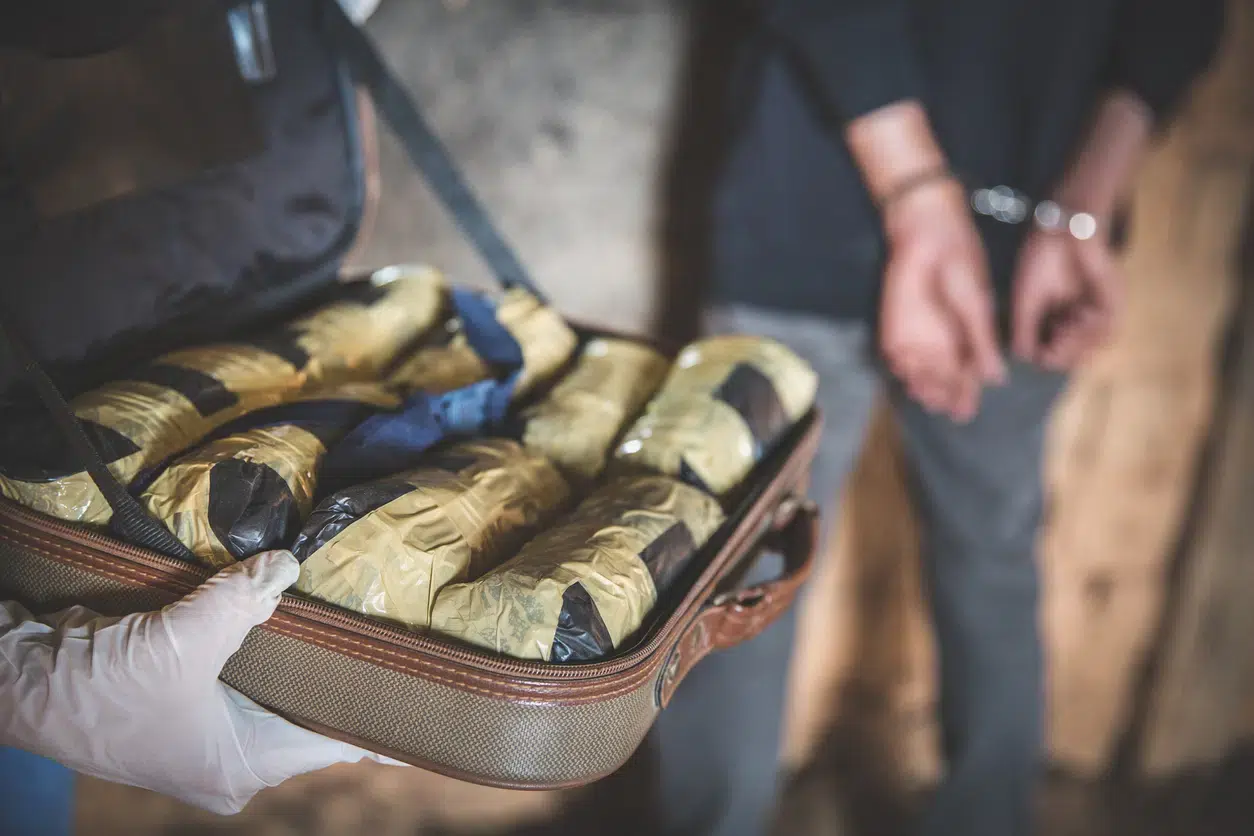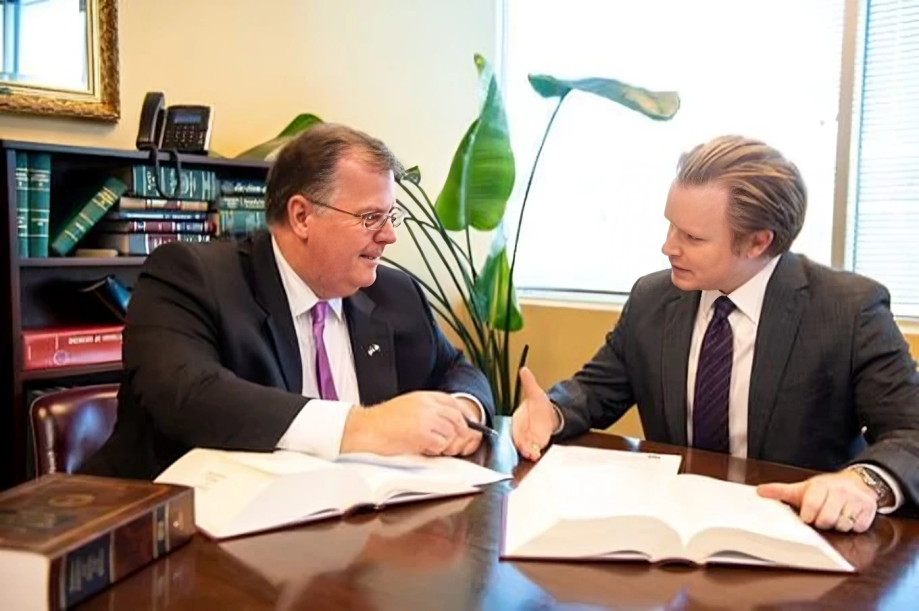Understanding Drug Trafficking Charges in Virginia
Drug trafficking charges in Virginia are serious offenses, governed by the Virginia Drug Control Act and related statutes. These charges typically involve the manufacture, sale, distribution, or possession with intent to distribute controlled substances, with penalties varying based on the type and quantity of the drug, the defendant’s criminal history, and other factors.
Trafficking charges typically apply to larger quantities of drugs or activities indicating intent to distribute, rather than simple possession. Penalties vary based on the type and amount of drug, the defendant’s criminal history, and specific circumstances of the case, such as proximity to schools or involvement of minors.
A conviction for drug trafficking can lead to decades in prison, heavy fines, and a permanent criminal record. Even first-time offenders can receive years of imprisonment because Virginia has mandatory minimum sentences for all drug trafficking offenders.
You should retain a skilled Virginia drug trafficking attorney to help you fight these serious charges. Attorney Scott C. Nolan is an experienced criminal defense attorney who has obtained successful outcomes for thousands of clients charged with misdemeanors and felonies.

The Importance of a Skilled Drug Trafficking Defense Attorney
A skilled drug trafficking defense attorney like Scott C. Nolan is vital in Virginia due to the severity of trafficking charges, which carry harsh penalties like lengthy prison sentences, substantial fines, and long-term consequences such as loss of rights or employment challenges.
Attorney Nolan has decades of experience helping clients successfully navigate serious drug possession and trafficking charges. He will help you as follows:
Navigate Harsh Drug Laws
Drug trafficking cases in Virginia involve intricate legal procedures, from arraignment to preliminary hearings and circuit court trials. A skilled attorney understands the nuances of Virginia’s criminal justice system, including filing pretrial motions to suppress evidence or dismiss charges due to procedural errors.
They scrutinize evidence, such as drug quantities, lab results, or informant testimony, for weaknesses, ensuring that police and prosecutors followed proper protocols. For example, if evidence was obtained without a valid warrant, your defense attorney could argue for its exclusion, potentially dismantling the prosecution’s case.
Build a Robust Defense
A strong defense lawyer crafts tailored strategies to counter trafficking charges. They may argue lack of intent to distribute, asserting drugs were for personal use, especially if quantities are borderline or paraphernalia is absent.
Other defenses include entrapment, where law enforcement induced the crime, or mistaken identity, challenging whether the defendant was correctly linked to the drugs. By analyzing factors such as packaging, cash, or communications, an attorney can challenge the prosecution’s narrative of trafficking. In some cases, they negotiate plea deals to reduce charges to simple possession, which carries lighter penalties.
Mitigate Penalties and Aggravating Factors
Virginia imposes severe penalties for trafficking, including mandatory minimums for large quantities or enhanced charges near schools or involving minors. A skilled attorney like Scott Nolan works to mitigate these factors by highlighting mitigating circumstances, such as a clean criminal record or a minor role in the offense, to argue for reduced sentences.
Attorney Nolan can also challenge aggravating enhancements, like proximity to a school, by questioning the prosecution’s evidence or measurements. In plea negotiations, they may secure alternatives like probation or drug treatment programs, particularly for first-time offenders.
Common Defenses to Drug Trafficking Charges
Skilled defense lawyers like Scott Nolan will employ various defenses to contest the prosecution’s case, such as:
Illegal Search and Seizure
One of the most effective defenses is challenging the legality of how evidence was obtained, invoking Fourth Amendment protections against unreasonable searches. If police searched without a valid warrant, probable cause, or consent, such as an improper traffic stop or home entry, evidence like drugs or paraphernalia may be deemed inadmissible.
For example, if officers searched a vehicle based on a hunch rather than reasonable suspicion, a defense attorney can file a motion to suppress, which could potentially lead to the case being dismissed. This defense hinges on proving law enforcement violated constitutional rights, a frequent issue in trafficking cases involving large-scale investigations.
Lack of Intent to Distribute
Trafficking charges often rely on proving intent to distribute rather than personal use. Defense attorneys may argue that the drugs were for personal consumption, especially if the quantity is near the threshold for trafficking.
Factors like the absence of packaging materials, scales, or large cash amounts can support this claim. For instance, a defendant caught with a moderate amount of marijuana might argue it was for personal use, not sale, weakening the prosecution’s case for trafficking. This defense requires careful analysis of circumstantial evidence to shift the narrative.
Entrapment
Entrapment occurs when law enforcement induces someone to commit a trafficking offense they would not have otherwise committed. This criminal defense is relevant in cases involving undercover operations or informants who pressure defendants into selling or transporting drugs.
For example, if an informant repeatedly coerces a defendant into delivering drugs, an attorney can argue entrapment, showing the defendant lacked predisposition to traffic. This defense is complex, requiring evidence that the government’s actions initiated the criminal intent, but it can lead to acquittal if proven.
Serious Consequences of a Drug Trafficking Conviction
It’s vital to retain a skilled defense attorney like Scott Nolan if you’re charged with drug trafficking. Virginia takes these charges seriously and will devote extensive resources to convict you.
Potential consequences of a drug trafficking conviction include:
Incarceration and Fines
A drug trafficking conviction in Virginia imposes severe criminal penalties based on the drug type, quantity, and case specifics. For Schedule I or II drugs, a first offense carries 5 to 40 years in prison and fines up to $500,000.
Larger quantities, such as 1 kilogram of cocaine or 1 gram of methamphetamine, trigger mandatory minimum sentences of 5 years or more, with life imprisonment possible for significant amounts. Marijuana trafficking can lead to five to 30 years in prison and fines up to $500,000.
Aggravating factors, like distributing near schools, add mandatory minimums of three years and $100,000 fines. These penalties often leave little room for judicial leniency, resulting in extended incarceration and financial burdens.
Collateral Consequences
Beyond prison and fines, a trafficking conviction triggers long-term collateral consequences in Virginia. Convicted felons lose certain civil rights, such as the right to vote, which can only be restored through a formal process after completing the sentence.
The right to possess firearms is also revoked, a significant restriction in a state with strong gun ownership traditions. Employment prospects suffer, as many employers are reluctant to hire individuals with felony drug convictions, particularly for roles requiring background checks.
Professional licenses may be suspended or revoked, further limiting career options. For non-citizens, a trafficking conviction often leads to deportation proceedings or inadmissibility, severely impacting immigration status.
Asset Forfeiture
Virginia law permits asset forfeiture in drug trafficking cases, allowing the government to seize property, money, or vehicles linked to the offense. For example, if a car or home was used to transport or store drugs, it could be confiscated, even if you are not the sole owner. This can devastate financial stability, leaving families without critical assets. Challenging forfeiture requires proving the property wasn’t directly tied to trafficking, a complex process that underscores the need for a skilled defense attorney to protect financial interests.
What to Expect During the Drug Trafficking Case Process
The legal process during a drug trafficking case is complex and can be intimidating. Fortunately, a skilled defense attorney like Scott C. Nolan will be with you every step of the way:
Arrest and Initial Detention
The process typically begins with an arrest, often following a police investigation, a traffic stop, or the execution of a search warrant. Law enforcement may seize drugs, cash, or paraphernalia as evidence of trafficking, which involves the sale, distribution, manufacture, or possession with intent to distribute controlled substances like cocaine, heroin, or methamphetamine. After arrest, you will be booked, fingerprinted, and detained, usually in a local jail.
Always retain a criminal defense lawyer as soon as possible when you are arrested or detained.
Arraignment and Preliminary Hearing
Following arrest, the defendant is formally charged at an arraignment in a general district court, where they’re informed of the charges and enter a plea. A preliminary hearing follows, usually within weeks, where the prosecution presents evidence to establish probable cause that the defendant committed the trafficking offense.
Your defense attorney may cross-examine witnesses or challenge evidence, such as questioning the validity of a search. Because drug trafficking is a felony in Virginia, the case is typically certified to a circuit court for further proceedings unless dismissed due to insufficient evidence.
Discovery and Pretrial Motions
In the circuit court, the discovery phase begins, where the prosecution shares evidence, including police reports, lab results, and witness statements. The defense attorney reviews this for inconsistencies, such as errors in drug testing or gaps in the chain of custody. Pretrial motions are filed to shape the case, such as motions to suppress evidence obtained through illegal searches.
Plea Bargaining or Trial Preparation
Many drug trafficking cases resolve through plea bargains, especially if evidence is strong or mandatory minimums loom. A skilled attorney like Scott Nolan negotiates to minimize penalties, such as reducing charges or advocating for drug treatment programs for first-time offenders.
Trial and Sentencing
If the case goes to trial, it occurs in circuit court before a judge or jury. The prosecution must prove beyond a reasonable doubt that the defendant knowingly possessed and intended to distribute the controlled substance. The defense attorney counters with strategies like questioning the legality of evidence or presenting alternative explanations for drug possession.
Preparing for a Strong Defense Strategy
Preparing a strong defense strategy for a drug trafficking charge in Virginia is critical given the severe penalties under the Virginia Drug Control Act. The basis of a robust defense involves taking early action, collaborating with an experienced criminal defense attorney like Scott Nolan, and adopting an aggressive approach to challenge the prosecution’s case.
First, always hire a skilled and experienced criminal defense lawyer. You have zero chance of beating a drug trafficking charge without strong legal advocacy. Attorney Nolan will assess your case’s strengths and weaknesses, reviewing police reports, lab results, and witness statements for inconsistencies. He will also leverage knowledge of Virginia’s judicial system, including prosecutors’ tendencies and judges’ sentencing patterns, to craft a strategic approach.
Second, Attorney Nolan will scrutinize the prosecution’s evidence, as trafficking charges require proving possession and intent to distribute. Attorneys investigate the legality of searches and seizures, often filing motions to suppress evidence obtained without probable cause or a valid warrant, such as drugs found during an unlawful traffic stop.
Third, your attorney will develop a defense specific to your case. Common strategies include arguing lack of intent to distribute, asserting the drugs were for personal use, especially if quantities are near trafficking thresholds or paraphernalia like scales are absent. Entrapment is another defense if law enforcement induced the crime, such as through coercive undercover operations.
Lastly, depending on your case, Attorney Nolan will either prepare a plea negotiation or proceed to trial. In many trafficking cases, attorneys negotiate with prosecutors to reduce trafficking charges to simple possession, or secure alternatives like probation or drug treatment programs, particularly for first-time offenders.

Fairfax Drug Trafficking Lawyer FAQs
Drug trafficking involves manufacturing, distributing, selling, or possessing large quantities of controlled substances with the intent to sell or distribute.
Penalties are severe and can include substantial fines, lengthy prison sentences, probation, mandatory drug education, and asset forfeiture.
First offenses may still carry significant penalties due to the seriousness of trafficking charges. Legal defense strategies focus on challenging evidence, intent, and the quantity of drugs.
Evidence may include possession of large quantities of drugs, financial records, communications, surveillance footage, and witness testimony indicating intent to distribute.
Searches must comply with the Fourth Amendment and state law. Evidence obtained illegally can be suppressed, which can be critical to a defense.
A defense attorney can challenge the validity of searches, question the intent to distribute, negotiate plea deals, and advocate for reduced charges or alternative sentencing.
Federal trafficking charges often carry harsher penalties, including longer mandatory minimum sentences, larger fines, and stricter supervision, compared to state charges.
Virginia law sets specific quantities for different drugs that define trafficking. Exceeding these thresholds can automatically elevate possession charges to trafficking.
Yes. Attorneys can negotiate with prosecutors to reduce charges, lower mandatory sentences, or explore alternative sentencing options based on case circumstances.
Mandatory minimums depend on the type and quantity of drugs involved, with serious trafficking charges carrying multi-year prison sentences.
Yes. Drug trafficking charges carry severe penalties, and an experienced lawyer is essential to challenge evidence, navigate legal procedures, and protect your rights.
Depending on the evidence, procedural issues, and case specifics, charges may be reduced to lesser offenses or dismissed, especially with strong legal representation.
The timeline varies based on investigation, pretrial motions, plea negotiations, and trial proceedings, often lasting several months to over a year.
Yes. Convictions can impact job opportunities, professional licensing, rental agreements, and eligibility for federal benefits.
Do not discuss the case publicly, preserve relevant evidence, and contact an experienced Fairfax drug trafficking lawyer immediately to protect your rights and build a strong defense strategy.


